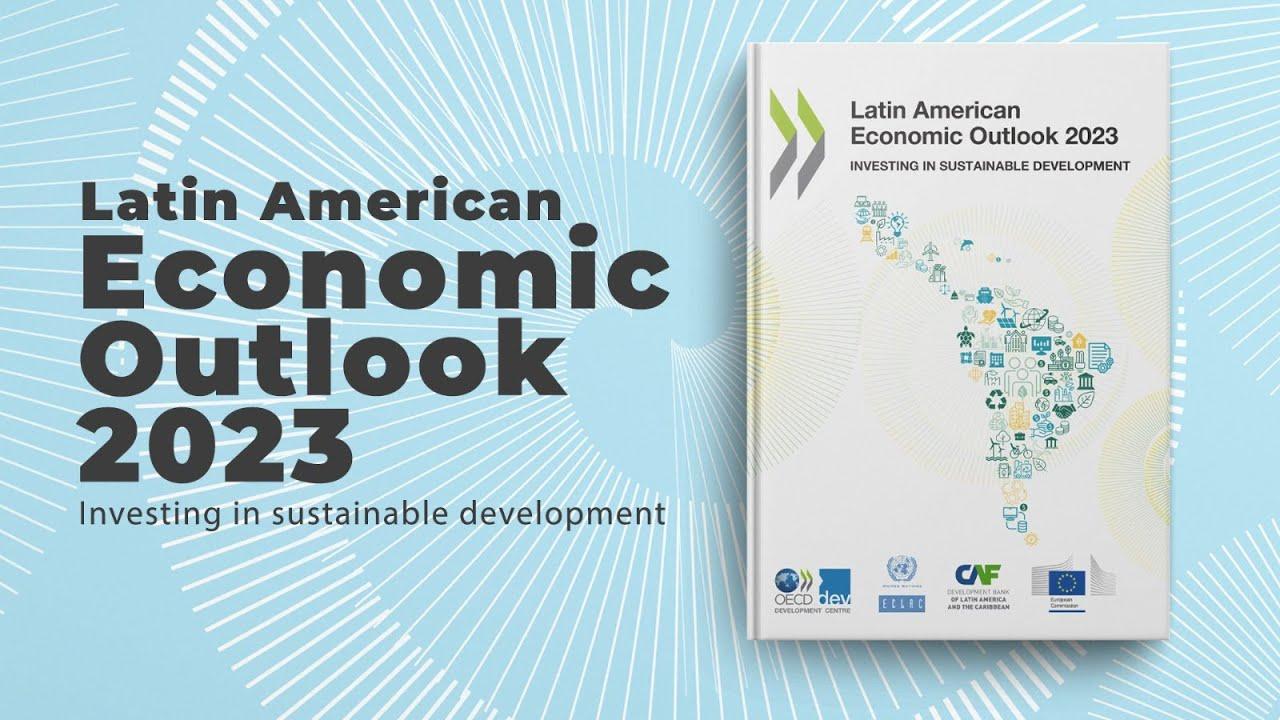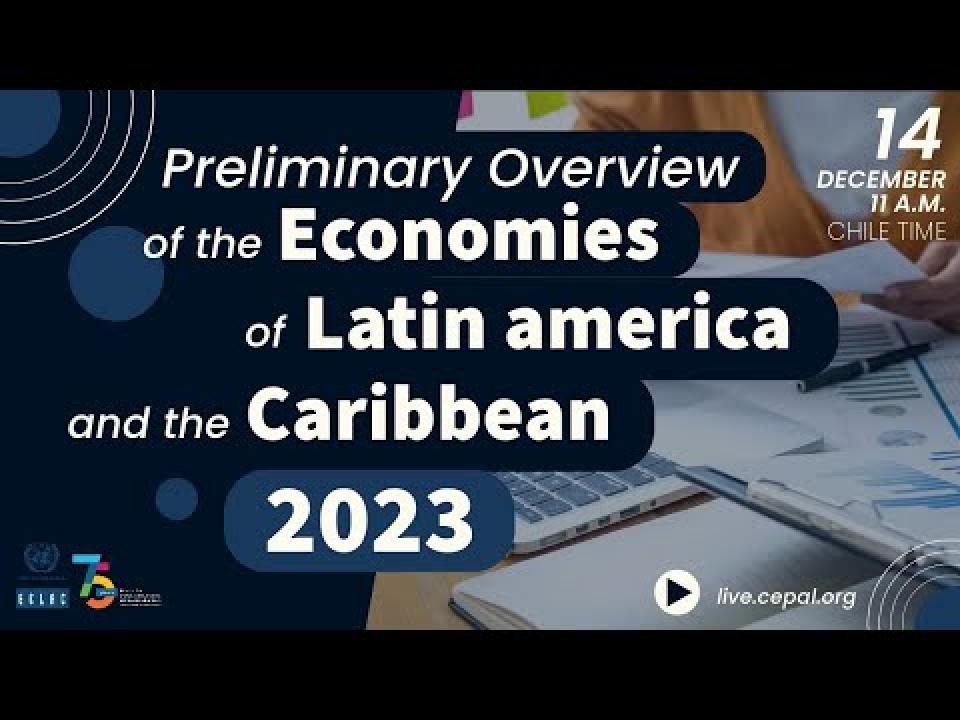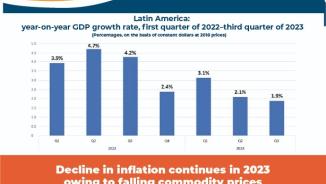video
Projects financed with public or public-private resources can increase economic activity, especially when the economy is going through a period of idle capacity and when infrastructure investment needs are clearly identified, which is true of the region today, the Economic Commission for Latin America and the Caribbean (ECLAC) said in its annual report Fiscal Panorama of Latin America and the Caribbean 2015: Policy space and dilemmas.
Latin America and the Caribbean has used fiscal policy to reactivate investment and confront the current context of economic deceleration, although with variations among countries, according to the document, which will be presented during the XXVII Regional Seminar on Fiscal Policy that will be held Tuesday, March 10 and Wednesday, March 11 at ECLAC’s headquarters in Santiago, Chile.
In the study, the United Nations organization warns that the decline in commodities prices implies a reduction in the income derived from non-renewable natural resources, which will weaken the public finances of countries that export these products. This could be compensated by recent tax reforms, the report says, especially by the strengthening of direct taxation.
Taking a long-term view with regard to the proportion of public debt versus GDP, Latin America (considering the average of 19 countries) experienced a long period of rising debt levels (1970-1989), followed by phases in which they fell (1990-1997 and 2004-2008, after a brief period of increases between 1998 and 2003), and they ultimately stabilized between 2009 and 2014.
Between 2003 and 2008, the level of public debt fell considerably and its composition also changed in a significant way, with longer maturities, greater participation of fixed-rate debt, a greater proportion of resident debt holders and the growing importance of debt denominated in the local currency. In this sense, in the last 25 years the reduction of external public debt has been notable in the region: in the early 1990s it represented more than 70% of GDP, compared with 16% in 2014.
Indebtedness levels vary widely among countries. Brazil has the highest public debt in Latin America (63.5% of GDP in 2014), although the amount of its net debt is much lower (37 %). Other countries in South America (Uruguay, Colombia and Argentina) and some in Central America (El Salvador, Costa Rica, Honduras, the Dominican Republic and Panama), as well as Mexico, have moderate levels of indebtedness (between 36% and 44% of GDP). On the other extreme, with debt levels below 22% of GDP, stand Chile, Peru and Paraguay.
According to the Fiscal Panorama of Latin America and the Caribbean 2015, the tax burden rose 5 points of GDP between 2000-2013 in the region, with a structure of regressive taxes. This explains why the impact of fiscal policy on income distribution is not significant. For that reason, ECLAC urges countries to continue taking action to fight fiscal evasion and circumvention, reduce preferential treatment and generally strengthen taxation on capital gains.
The document’s main conclusions will be presented during the first session of the XXVII Regional Seminar on Fiscal Policy, which will be inaugurated tomorrow by ECLAC’s Executive Secretary, Alicia Bárcena, and Chilean Finance Minister, Alberto Arenas.
The event is organized by ECLAC with the co-sponsorship of the International Monetary Fund (IMF), the World Bank, the Inter-American Development Bank (IDB), and the Organization for Economic Cooperation and Development (OECD). It is also supported by the Spanish Agency for International Development Cooperation (AECID), thanks to the joint ECLAC/AECID program “Renewing the Fiscal Pact in Latin America and the Caribbean.”



